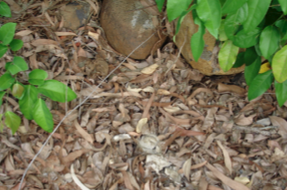Local North Queensland information for Local North Queenslanders.
One of the secrets of successful native gardening is the lavish use of organic mulch…
 In our hot tropical monsoonal climate with a long dry season every year, any measure that reduces the need for watering and saves on water bills is surely commonsense.
In our hot tropical monsoonal climate with a long dry season every year, any measure that reduces the need for watering and saves on water bills is surely commonsense.
Bare ground heats up very easily under the relentless tropical sun. Roots can’t grow in baking hot soil. Therefore in North Queensland it is essential to cover the ground with a thick insulating blanket of mulch to keep the soil temperature cool enough for the roots of newly planted plants to grow.
DON’T EVER USE BLACK PLASTIC TO COVER YOUR SOIL. Sure, it will smoother out weeds, but, being black, it absorbs heat and makes the soil too hot. The roots will cook underneath it. Furthermore, soil needs oxygen otherwise it becomes sour, and black plastic cuts off the air supply. Black plastic is popular in cold climates where the ground needs to be kept warm, but is totally unsuitable for the tropics.
Mulch prevents weed growth around your plants and in your gardens, but only if the mulch is clean and free of of dirt. As soon as dirt is mixed with mulch it provides a “toe-hole” for seeds to germinate and become established. Don’t put any dirt on top of your mulched garden, and take particular care when planting plants that soil doesn’t get mixed with the mulch.
Healthy soil is alive with micro-organisms which are busy gobbling up fallen leaves and other organic matter and returning the nutrients to the soil for recycling through your new plants. Mulch provides the ideal environment for the establishment of a thriving community beneath the surface.
Once this microscopic community is established, it does one more, very important thing – it helps control root diseases.
Basically, there are two types of micro-organisms: goodies and baddies. And the goodies keep the baddies at bay. Therefore, the chance of root-rot diseases becoming established in a well mulched garden is very low. On the other hand, plants in bare ground will be stressed and highly susceptible to disease. So, for the health of your plants, mulch them!
 Types of Mulch:
Types of Mulch:
Any organic mulch is OK: peanut shell, grass clippings, hay, bagasse, anything that was a plant.
Health and Safety:
Some mulches are quite dusty or contain a lot of fungal spores, so wear a mask while spreading them, and make sure the wind is blowing away from you. Once the mulch is spread and watered down, there is no more risk.
Applying Mulch:
You can either plant your plants first and then spread the mulch around them, or you can spread the mulch first and plant later. Both ways have pros and cons.
If you choose the former, be careful not to trample your plants or compact the soil as you walk around. If you choose the latter, be very careful to keep the mulch clean and free of dirt when you dig the holes to plant your plants.

And Lastly:
Mulch should be applied as a clean blanket ON TOP of the soil surface. It should never be dug into the soil – this is for compost NOT for mulch.
Remember:
Thick organic mulch around your plants and over your garden beds is essential for several reasons:
- keeping the soil moist by reducing evaporation
- controlling weed growth
- keeping the soil cool
- keeping the soil healthy by maintaing a balanced population of goodies & baddies (mirco-organisms)

Types of Mulch:
- Peanut shell
- Grass clippings
- Hay
- Bagasse
- Anything that once was a plant
Do’s and Don’ts
Don’t:
- Don’t use black plastic to cover your soil.
- Don’t dig mulch into the soil.
- Don’t use dirty mulch.
Do:
- Mulch your native plants immediately after you have planted your plants.
- Apply mulch as a clean blanket ON TOP of soil surface.
- Wear a mask when spreading mulch.



